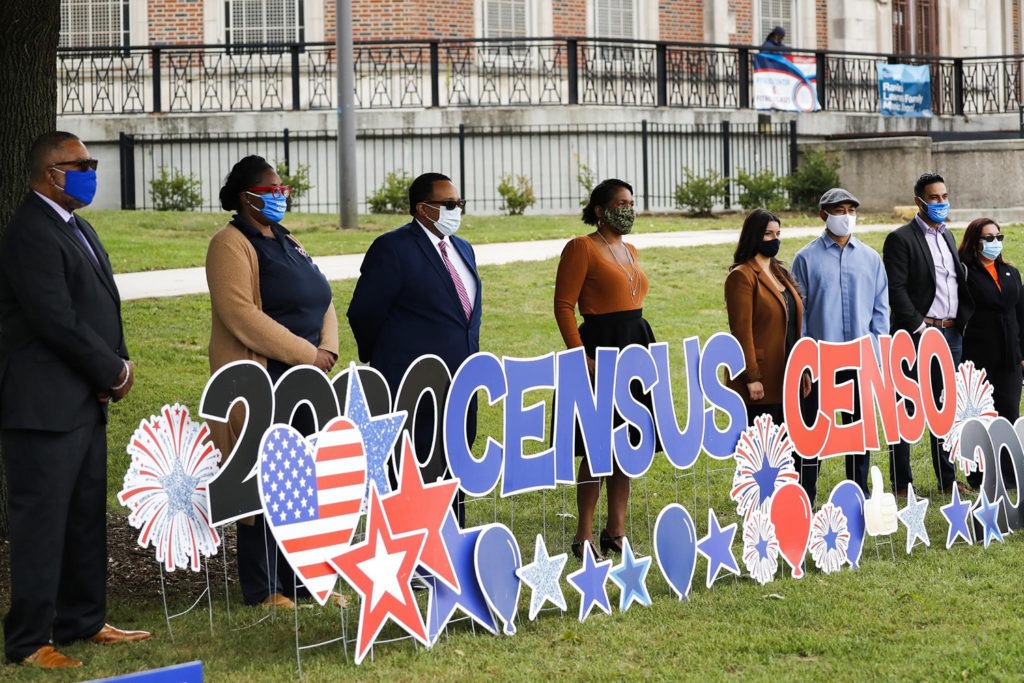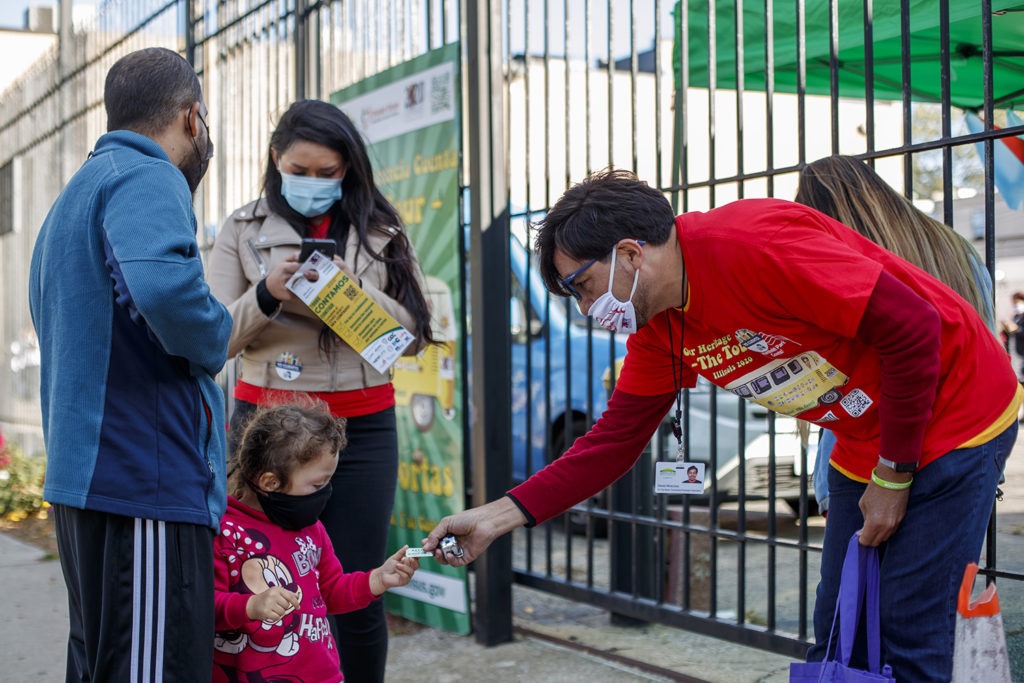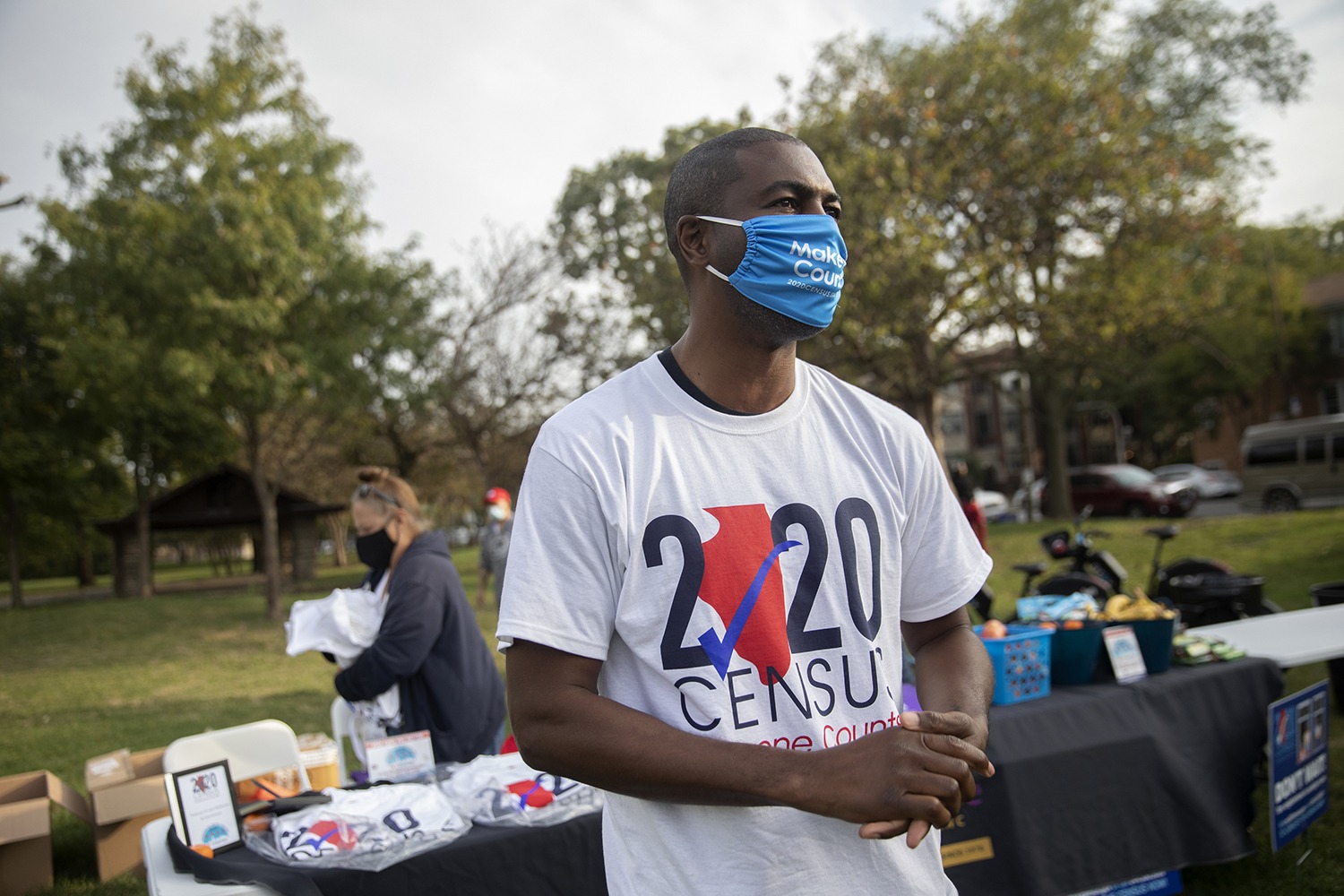I stood in front of the courtyard building on Jonquil Terrace, with my official U.S. Census Bureau bag slung over my shoulder. I had four addresses to visit inside — four addresses that hadn’t returned a Census form — but I was faced with an obstacle: a locked gate. Every building in Chicago is required to post the name and number of the manager on the side. I called. A woman answered. I explained my dilemma.
“Why do you need to get inside?” she asked.
“I’m with the Census Bureau. I need to find people who didn’t mail back their forms.”
“Well, maybe they didn’t want to participate!” she shouted.
“Everyone has to participate in the Census,” I shouted back. “It’s in the Constitution!”
Eventually, I followed a resident through the gate. To my great fortune, the landlord was so slummy that the locks on all the front doors were broken, so I could walk inside and bother the residents face to face. Don’t judge me. I was doing my Constitutional duty. Still, it was another example of the challenges that faced urban enumerators. Unlike our counterparts in the suburbs and the countryside, we couldn’t knock directly on the doors of our addresses. We had to sneak in, or ring doorbells. Sometimes, even that was impossible, because of those confounding electronic buzzers that list the residents’ names, instead of unit numbers.
That’s why I wasn’t surprised by the news that Illinois was undercounted in the 2020 Census, by somewhere between 65,000 and 440,000 people. The original Census numbers suggested that Illinois had lost 18,000 people during the 2010s. It turns out we actually gained people. Gov. J.B. Pritzker is taking all the credit, even though he was governor for only a year before the Census was taken.
From my own experience as an enumerator, I’m sure the Census Bureau missed even more people than that. The purpose of the Census is ensuring the fair distribution of power and resources. Working on the Census is a lesson in how the people most in need of power and resources are the people most likely to get left out.

Immigrants, for one. My Spanish was just good enough to guide Mexicans and Guatemalans through the questionnaire. Not all immigrants speak Spanish, though. There was an old woman on Lunt Avenue who appeared to be from an Eastern European country. I couldn’t understand her and she couldn’t understand me, so she shut the door in my face. Senior citizens were afraid to open their doors because of COVID.
Renters could also be a challenge. Rich people move around a lot less than poor people, since they own their own homes. Our job was to find out how many people were living at an address on April 1, Census Day. COVID delayed the project, so we worked into October. That meant we were trying to hunt down people who had moved six months earlier. Most management companies shared information about their tenants. There was one, though, whose agents hung up on me every time I called. I finally asked the alderwoman’s office to intercede. She wanted everyone in her ward counted. The landlord wanted renovation permits. After a phone call from the ward office, we started getting the numbers we needed. That’s how Chicago works.
Working both sides of Howard Street showed me another reason the Census reinforces the inequities it is supposed to remedy. The white, professional, homeowning residents of Evanston were far more cooperative than the Black, brown, working-class immigrants of Rogers Park. There was that guy on Asbury Street who threatened to kick my ass if I didn’t get the f*ck away from his door and keep walking, but most Evanstonians not only gave me their personal information, they gave me their neighbors’ information, if I needed it. They thanked me for my service, and offered me bottled water. Those people trusted the government. They believed in the system, because the system worked for them. In Rogers Park, people feared the government. If I flashed my federal badge, they usually gave me their personal details, but rarely would they share their neighbors’. Eventually, I started counting people even if they refused to talk to me. I’d seen a person in the dwelling, right?

(Donald Trump was still president during the 2020 Census. His administration tried to include a citizenship question, but was thwarted by the Supreme Court. We asked about national origin, but we never asked whether people were citizens, or whether they were in the country legally. Our task was to count every person in the country, no matter why they were here. Still, Trump was known to be hostile to [non-white] foreigners, so he may have frightened some immigrants out of participating.)
I’m glad the Census corrected the misconception that Illinois lost population. It’s a nice talking point for the state, but unfortunately, the post-Census survey will not change our official numbers, or bring us more federal money. We were one of six states with a significant undercount. As I found out when I went door to door, we’re a hard-to-count state. And that’s just going to be our tough luck for the next ten years.
Related Content



